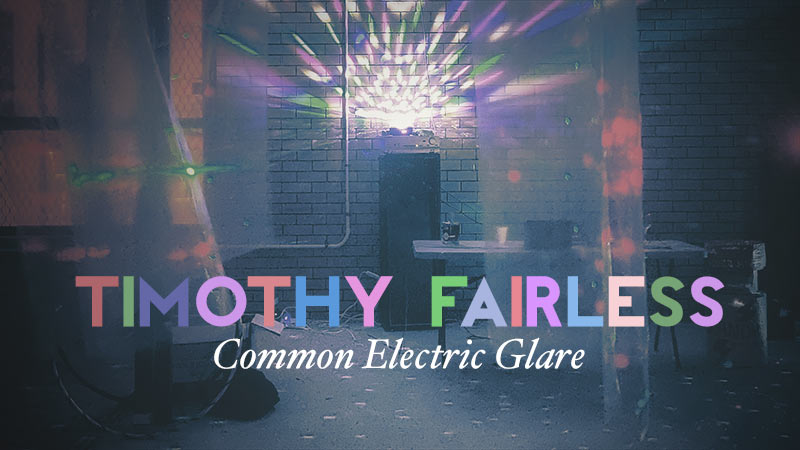
Album Video
REVIEWS & PRESS
The album was enjoyed by Peter Hollo, who premiered the title track on Utility Fog, who wrote:
It's instrumental music that draws much from drone and dark ambient, but it's also very expressive, and anything but static. There are beautiful passages where electronics give way to prepared piano, plucked and bowed violin and other physical sound sources, there are shimmering pulsating passages just this side of techno, and seemingly there are anguished vocals just on the edge of perception. I'm reminded of Ben Frost's early albums for Bedroom Community, and that's high praise.
And reviewed in depth by Chris Cobcroft for 4ZZZ FM's new releases show:
...this record is more about the plunging sensation of horror we experience when we realise how much of our lives we’ve given over to social media, or the cognitive dissonance as we try to disconnect from a networked existence. Maybe, too, that’s why this record isn’t a satirical suite of Tik Tok videos or sugary hyperpop songs. Instead, Common Electric Glare shudders with a brutal, dark ambient roar, to express its dissatisfaction.
Read the full text of Chris' review down here.

Other Frequencies 18.09.21

The Old Lock-Up 25.09.21

Other Frequencies 18.09.21

4ZZZ FM Rusted Satellites 12.09.21

Other Frequencies 18.09.21

Sessions @ the Shangri-la 26.09.21

Sessions @ the Shangri-la 26.09.21

Other Frequencies 18.09.21

Queensland Artists 02.10.21
FBI RADIO UTILITY FOG
Insightful review by Peter Hollow
On air and online, 23rd August 2021
Meanjin/Brisbane based composer Timothy Fairless has composed soundtracks and installations, and released a number of EPs before this new album, Common Electric Glare, which is released this coming Friday. A document of our times, it began as a response to the thinning of our world through our dependence on technology, and became a personal reflection of the composer's own experiences - as with all great music.
It's instrumental music that draws much from drone and dark ambient, but it's also very expressive, and anything but static. There are beautiful passages where electronics give way to prepared piano, plucked and bowed violin and other physical sound sources, there are shimmering pulsating passages just this side of techno, and seemingly there are anguished vocals just on the edge of perception. I'm reminded of Ben Frost's early albums for Bedroom Community, and that's high praise.
4ZZZ RADIO NEW RELEASES SHOW
Generously-proportioned Track-by-track review by Chris Cobcroft
On air and online 27th August 2021
Since I listened to Timothy Fairless’ 2014 record, Measurement, which surged ambitiously from ambient through post-rock to noise and beyond, its elegant piano solos shattered by white noise and set aflame by thunderous doom, I’ll admit I haven’t been fully aware of what the hardworking producer and composer has been up to. Come 2021 and that’s not a problem: I know he’s been pacing out his own small plot in the same prison that holds us all captive. It’s an unpleasantly universal experience and I find I’ve been judging every new release I come across against it. It’s become almost as repetitive and boring as the pandemic itself, as I search for the dark undertones in every song, looking for evidence that we’re all losing our minds. In that respect Fairless’ latest is, at least, slightly different, in that it foregrounds the trauma. He draws a grim focus on the tiny electronic screens that have become one of our few remaining connections to the outside world. Our fixation on this minute avenue of escape comes at a price, however, one which is hard to quantify even as we’re all intimately aware we’re paying it. Every minute that we’re glued to our phones we’re bathed in the sinister glow of the Common Electric Glare.
The phrase is borrowed from Aldous Huxley’s Brave New World, a novel about a curiously hedonistic dystopia where the nanny-state has become all encompassing, catering to humanity’s every whim with chemicals and entertainments, a future that’s devoid of conflict, but also of all the passion of human existence. It is from this mood-stabilised numbness that one man tries to break free. To quote the book: "He had emerged from that crimson twilight into the common electric glare with a self-consciousness intensified to the pitch of agony. He was utterly miserable, and perhaps (her shining eyes accused him), perhaps it was his own fault."
So maybe this record is more about the plunging sensation of horror we experience when we realise how much of our lives we’ve given over to social media, or the cognitive dissonance as we try to disconnect from a networked existence. Maybe, too, that’s why this record isn’t a satirical suite of Tik Tok videos or sugary hyperpop songs. Instead, Common Electric Glare shudders with a brutal, dark ambient roar, to express its dissatisfaction.
Certainly that’s how it presents on an opener bearing the ominous moniker, The Howling. The doom and drone of guitar distortion obscures distressed shrieks, lost in the background, before collapsing into a cavernous silence, in one of Fairless’ familiar aural jump-cuts. It rounds out its eight minutes with a steadily increasing volume of white noise, reminiscent of a chittering locust plague.
The two-part cut of Control I and II presents another void, but one that’s filled with a wash of nearly formless but tuneful percussion, something like a marimba? In the distance a vaguely disturbing, mechanical beat begins to coalesce, growing in intensity until it dominates the second half of the song with a fierce, industrial dance. It’s easy to think of this as an aural allegory for a progress from a medicated state to a shattering withdrawal.
Half Life is a curious beast, quickly soaring into a euphoric atmosphere of studio treated strings that would do Vangelis proud, before quietly bridging to a another array of strings, this time skittering, tortured and metallic. I think it's Fairless abusing a lapsteel guitar, but it could be a nastily prepared piano; I can’t help but think this sounds like the country-tronic work of Andrew Tuttle if he were in the very worst mood he’s ever been in. I don’t know quite what it means, but in a happy occurrence, the optimistic strings return for a muted reprise of their earlier magnificence.
The album’s title track shares a bit in common with Control, but blends its two extremes. Ambient harmony backs a minimal but speeding rhythm, like a heart that’s racing on-and-on as glitches and white noise slowly fill the listeners ears. The Common Electric Glare can’t always shield us from unpleasant sensations, I suppose.
Almost Lost You In Shinjuku is one of the least abstract titles here and seems like a detour from the relentless philosophical speculation. If I had to guess, I think it’s an evocation of the endlessly stretching tunnels, stairways and platforms of the world’s largest train station, which is Shinjuku’s claim to fame. The repeated, pleasantly wheezing melodic figure on an Estey Pump Organ, sounds like a jolly chime on the PA. With its noticeably easier mood, it seems like getting lost in the vast bowels of Japan is not such a bad thing.
As if this was some pleasant dream of the past, we return to dystopia with Future Animal, a reserved but metallic and discomfiting, ambient soundscape. It’s as though all flesh and other recognisably living qualities have been stripped away from this organism. That’s as nothing next to the stormy finale of The Ugly in You & the Ugly in Me. The ambient harmonies of the record are distorted into a maelstrom of noise, bloating outwards as percussion crashes in its midst. Its most recognisably analogue moments are filled with strings crying in anguish. Goodness, is this how we end up?
It’s slightly ironic, if understandable, that Tim Fairless has couched his manifesto against our electronic addiction in his most wholly digital, solo record. It has much less human contribution than usual, employing only Greg Olley on violin, who provides much of the soothing melodic relief amongst the thorny, steely snarls of distortion. The lack of live percussion, - maybe as much a practical necessity as a stylistic choice - has Fairless veering ever deeper into synthetic sounds and it feels stylistic. It is as if the realisation of our increasing dependence on the machine may arrive after we can do anything about it; our humanity almost completely eroded. Perhaps the only response to such distress will be the algorithm adding another dose of medication to our feed, drawing us back to the calming light of the Common Electric Glare.